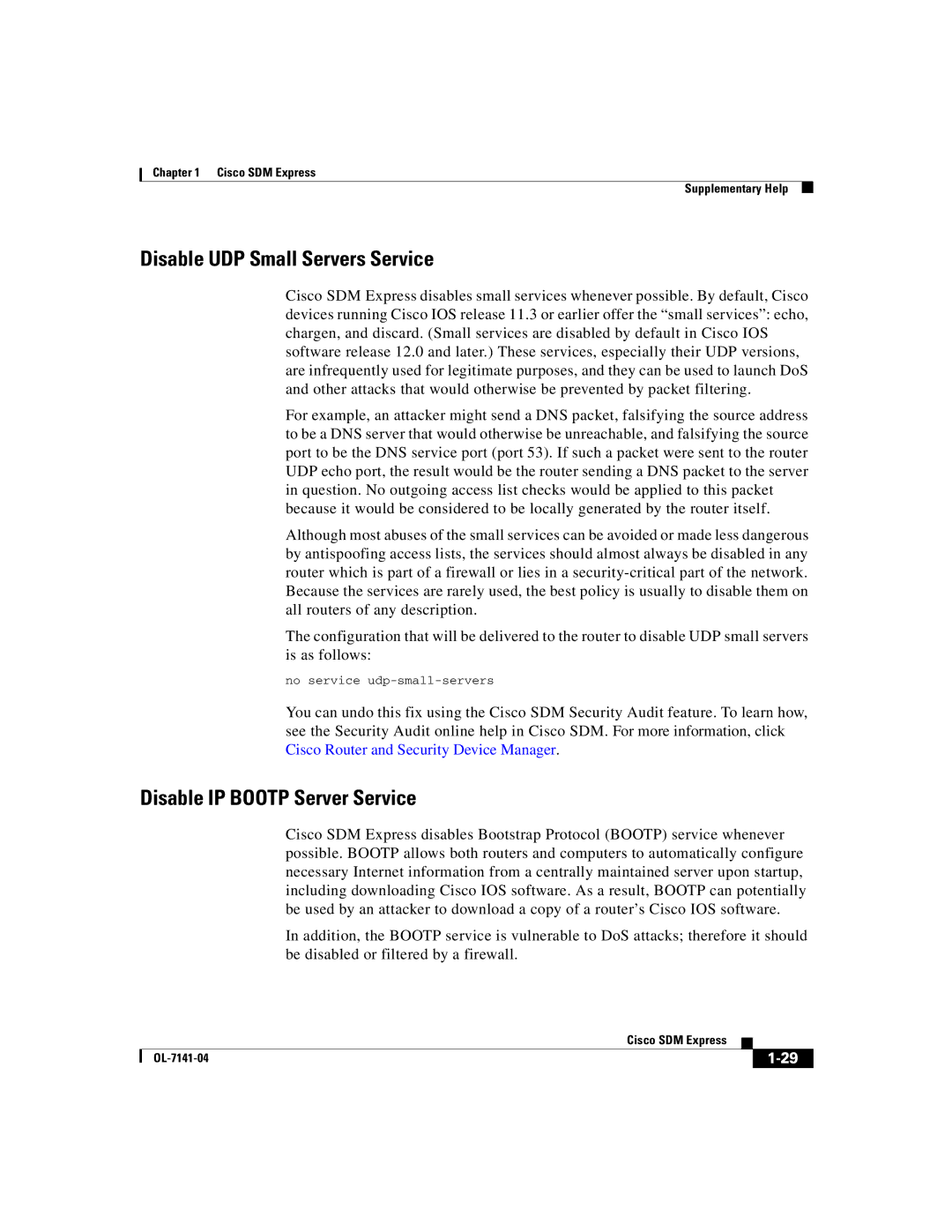Chapter 1 Cisco SDM Express
Supplementary Help
Disable UDP Small Servers Service
Cisco SDM Express disables small services whenever possible. By default, Cisco devices running Cisco IOS release 11.3 or earlier offer the “small services”: echo, chargen, and discard. (Small services are disabled by default in Cisco IOS software release 12.0 and later.) These services, especially their UDP versions, are infrequently used for legitimate purposes, and they can be used to launch DoS and other attacks that would otherwise be prevented by packet filtering.
For example, an attacker might send a DNS packet, falsifying the source address to be a DNS server that would otherwise be unreachable, and falsifying the source port to be the DNS service port (port 53). If such a packet were sent to the router UDP echo port, the result would be the router sending a DNS packet to the server in question. No outgoing access list checks would be applied to this packet because it would be considered to be locally generated by the router itself.
Although most abuses of the small services can be avoided or made less dangerous by antispoofing access lists, the services should almost always be disabled in any router which is part of a firewall or lies in a
The configuration that will be delivered to the router to disable UDP small servers is as follows:
no service
You can undo this fix using the Cisco SDM Security Audit feature. To learn how, see the Security Audit online help in Cisco SDM. For more information, click Cisco Router and Security Device Manager.
Disable IP BOOTP Server Service
Cisco SDM Express disables Bootstrap Protocol (BOOTP) service whenever possible. BOOTP allows both routers and computers to automatically configure necessary Internet information from a centrally maintained server upon startup, including downloading Cisco IOS software. As a result, BOOTP can potentially be used by an attacker to download a copy of a router’s Cisco IOS software.
In addition, the BOOTP service is vulnerable to DoS attacks; therefore it should be disabled or filtered by a firewall.
|
| Cisco SDM Express |
|
|
|
|
| ||
|
|
| ||
|
|
|
